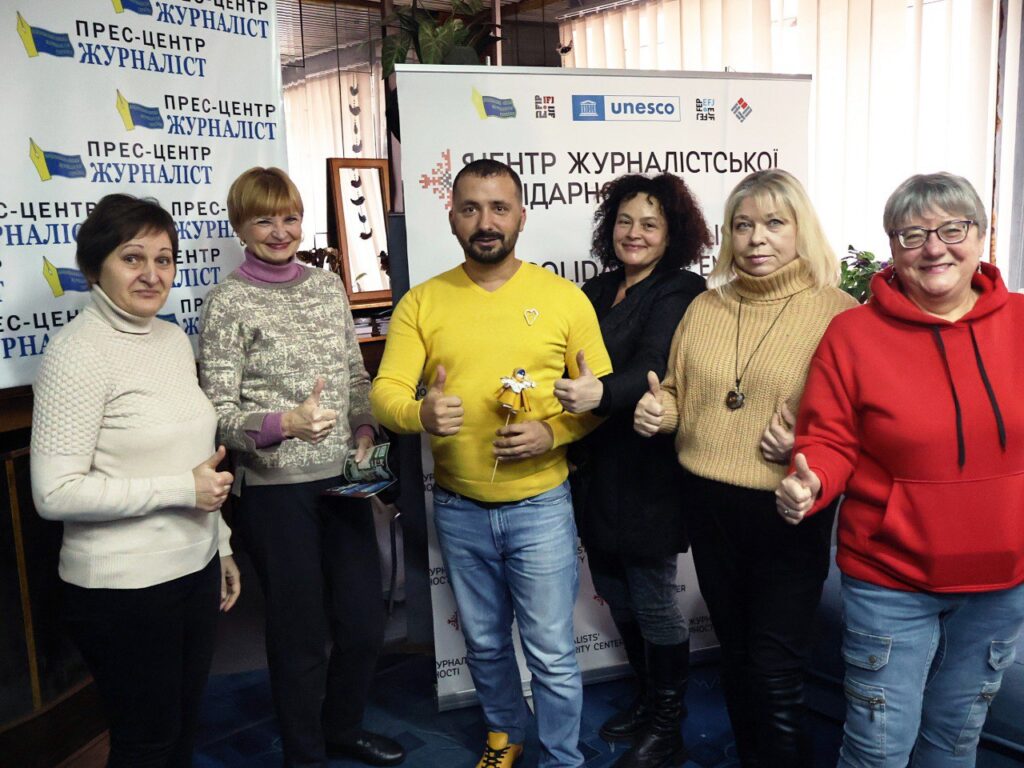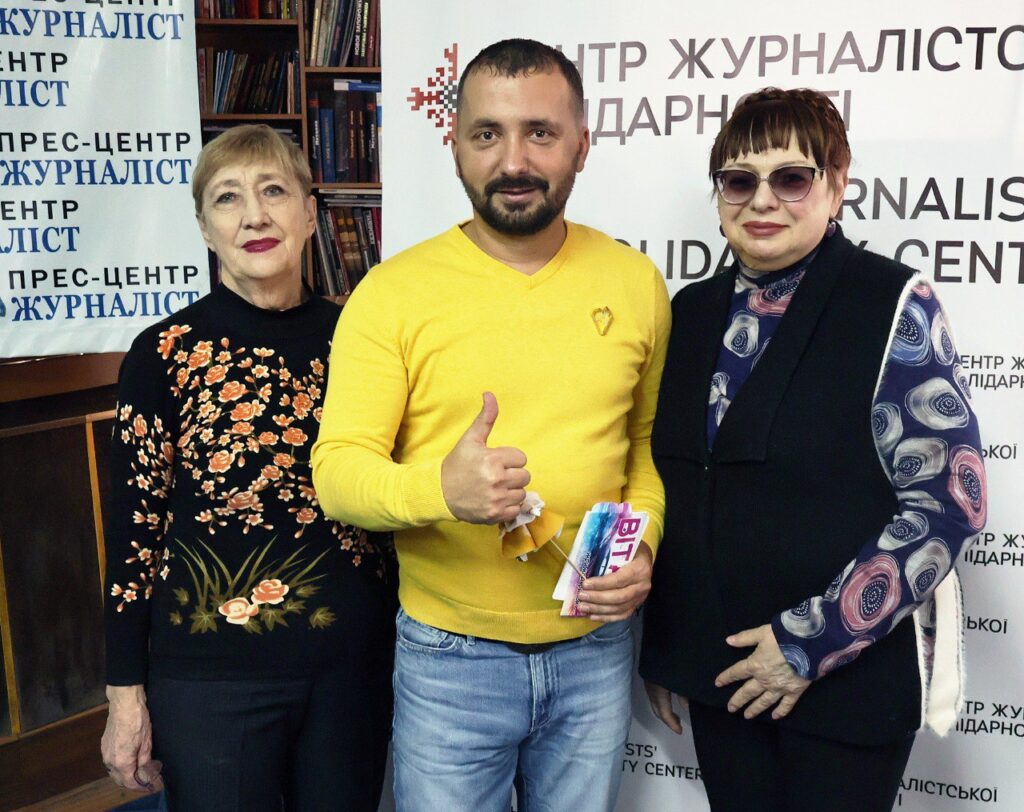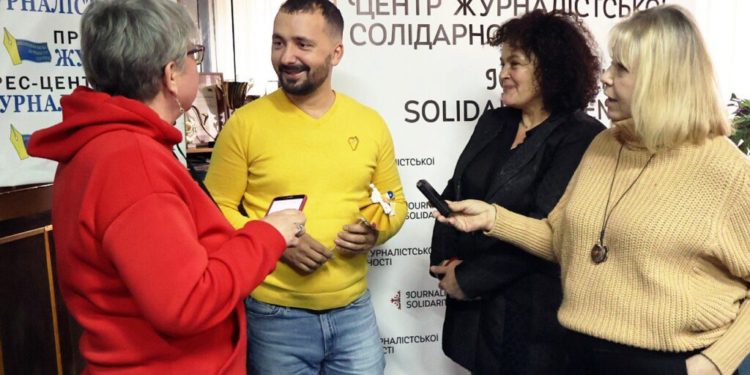Recently, a meeting was held in the co-working space of the Zaporizhzhia Journalists’ Solidarity Center (JSC) of the National Union of Journalists of Ukraine (NUJU) with the founder and head of the BELUGA.UA NGO, a well-known public figure and philanthropist, Oleksandr Beluga. His name is marked on the Forbes list in 8th place because in 2022, at the beginning of the war, he managed to feed 2,500 people in one day. And a few weeks later, he was preparing hot lunches for more than 8,000 people every day.
And since the beginning of the war, Oleksandr Beluga and his team have distributed 5.3 million hot meals, handed over 1.5 million food and over 700,000 hygiene kits, 153 tons of clothing and footwear to IDPs and people in need, delivered 307 generators, 43 Starlink stations and 57 vehicles, handed over 822 bulletproof vests, 1,021 tons of water and 192,000 medical supplies to the military. And this is not a complete list of what Oleksandr Beluga has done for people and our victory. “I don’t just help; I live by it” is his life credo. So, the journalists had something to listen to, something to ask about, and something to tell. Although the meeting was planned as an interview for media workers from several publications, an unexpectedly large number of journalists gathered. But interviews for individual media outlets, which is why the meeting was actually planned, also took place, only after the mass event because everything is possible in the co-working space of the Zaporizhzhia JSC.

After all, the co-working space of the JSC is a well-known and popular place among Zaporizhzhia media workers. They can work here fruitfully, if necessary because the co-working always has light, communication, and the Internet. Journalists have computers, a printer, a scanner, cameras, and a video projector at their disposal. And suppose someone is going on a business trip to the front. In that case, they will be provided with a full set of reliable protective equipment in the co-working space.
“I and many of my journalist colleagues have already become regular visitors to the co-working space because we were left without offices and the necessary office equipment. And it is convenient and cozy to work here. We also meet here with the future heroes of our materials – we interview, take photos, and TV crews conduct filming. And we can also get individual consultation from a psychologist or lawyer in the co-working space, chat with colleagues, and take part in training sessions,” says the well-known Zaporizhzhia journalist, Olha Bohlevska.
In addition to all of the above, the journalistic co-working space of the Zaporizhzhia JSC has also become a popular space where public organizations of the city willingly hold their events. They are interested in chatting with journalists, and media workers, in turn, have the opportunity to receive new, often exclusive information on various issues. This is a mutually beneficial cooperation.

The network of Journalists’ Solidarity Centers is an initiative of the National Union of Journalists of Ukraine, implemented in collaboration with the International and European Federations of Journalists and UNESCO and with the support of the People of Japan. Our primary goal is to assist media professionals working in Ukraine during the war. The Centers are active in Kyiv, Kharkiv, Zaporizhzhia, Dnipro, Lviv, and Ivano-Frankivsk. The project is part of UNESCO’s broader efforts to support the Safety of Journalists and Freedom of Expression in Ukraine.
Call the Zaporizhzhia JSC at 096 277 5352 (Nataliya Kuzmenko, Valentyna Manzhura, co-coordinators of the Zaporizhzhia JSC). The Center’s address is 152 Sobornyi Avenue.
Valentyna Bystrova
Photos by Serhii Bizhko

 THE NATIONAL UNION OF
JOURNALISTS OF UKRAINE
THE NATIONAL UNION OF
JOURNALISTS OF UKRAINE
















Discussion about this post